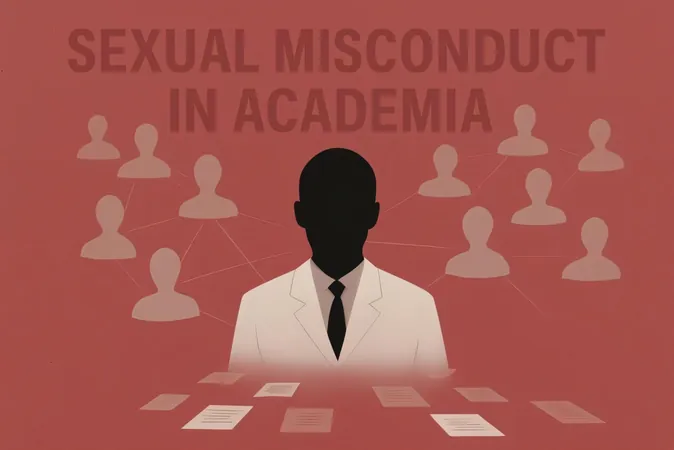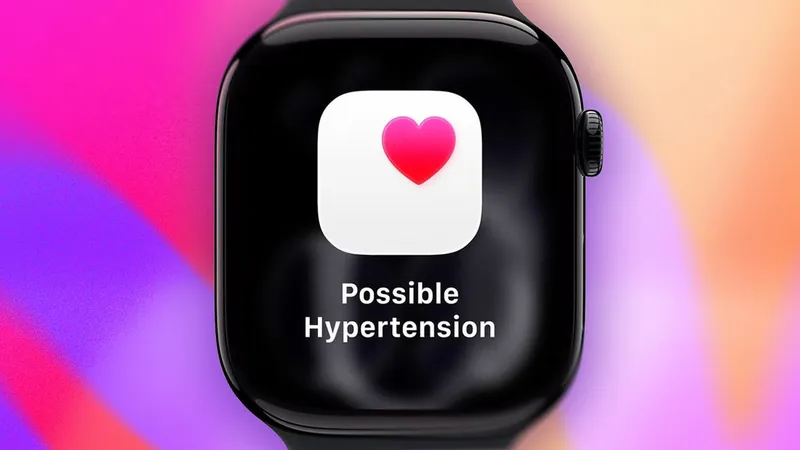
Unveiling the Future: Scientists Aim to Create an Entire Human Genome From Scratch!
2025-07-07
Author: Amelia
Imagine a world where we can build human genomes from the ground up—sounds like science fiction, right? But thanks to a groundbreaking initiative led by prominent scientists, that dream is moving closer to reality!
The Legacy of the Human Genome Project
The Human Genome Project marked a monumental achievement in the scientific realm, taking over 13 years and nearly $3 billion to fully map our DNA. This colossal effort has drastically enhanced our understanding of genetic diseases and propelled the advancement of DNA sequencing technologies, slashing the cost from about a million dollars in 2008 to just a few hundred today.
Introducing the Synthetic Human Genome Project (SynHG)!
Now, with a generous boost of £10 million ($13.6 million) from the Wellcome Trust, the Synthetic Human Genome Project (SynHG) is set to launch. Lead scientist Jason Chin from the University of Oxford envisions a future where synthesizing large genomes—including human cells—could revolutionize biotech and medicine.
Building Blocks of Life: A Stepping Stone
Despite the ambitious goal of synthesizing a complete human genome, the project will initially focus on creating a single human chromosome within the next 5 to 10 years. This foundational work is essential for eventually constructing entire genomes.
Beyond Gene Editing: A New Frontier in Biology
Whereas current gene editing allows us to modify existing DNA, synthesizing DNA from scratch opens doors to testing new theories and understanding how DNA functions in ways we've never been able to before, explains Matthew Hurles, director of the Wellcome Sanger Institute.
Unlocking the Mysteries of Our DNA
Currently, our knowledge of the genome is confined to about 2% of the DNA that codes for proteins, leaving the remaining 98%—often referred to as 'non-coding' DNA—largely unexplored. Building a complete genome could be the key to unlocking this 'dark matter' of genetics, according to Julian Sale from the UK’s Medical Research Council.
Ethical Concerns and the Path Forward
While the potential for positive breakthroughs is immense, this project does not come without concerns. Critics fear that the same technologies could lead to ethically dubious applications—think bioweapons or genetically enhanced humans. Bill Earnshaw, a geneticist from Edinburgh University, warns, "The genie is out of the bottle." There is a pressing need for safeguards.
Charting a Responsible Course
In response to these challenges, SynHG will implement a comprehensive social-science program aimed at identifying risks and ethical issues, especially given that much genomic research has historically leaned towards European ancestry, potentially limiting its applicability.
As we embark on this ambitious journey, there may be plenty of time to address potential ethical pitfalls. If successful, the SynHG could herald a second revolution in genetics, promising to deliver more benefits than harms in its wake.









 Brasil (PT)
Brasil (PT)
 Canada (EN)
Canada (EN)
 Chile (ES)
Chile (ES)
 Česko (CS)
Česko (CS)
 대한민국 (KO)
대한민국 (KO)
 España (ES)
España (ES)
 France (FR)
France (FR)
 Hong Kong (EN)
Hong Kong (EN)
 Italia (IT)
Italia (IT)
 日本 (JA)
日本 (JA)
 Magyarország (HU)
Magyarország (HU)
 Norge (NO)
Norge (NO)
 Polska (PL)
Polska (PL)
 Schweiz (DE)
Schweiz (DE)
 Singapore (EN)
Singapore (EN)
 Sverige (SV)
Sverige (SV)
 Suomi (FI)
Suomi (FI)
 Türkiye (TR)
Türkiye (TR)
 الإمارات العربية المتحدة (AR)
الإمارات العربية المتحدة (AR)